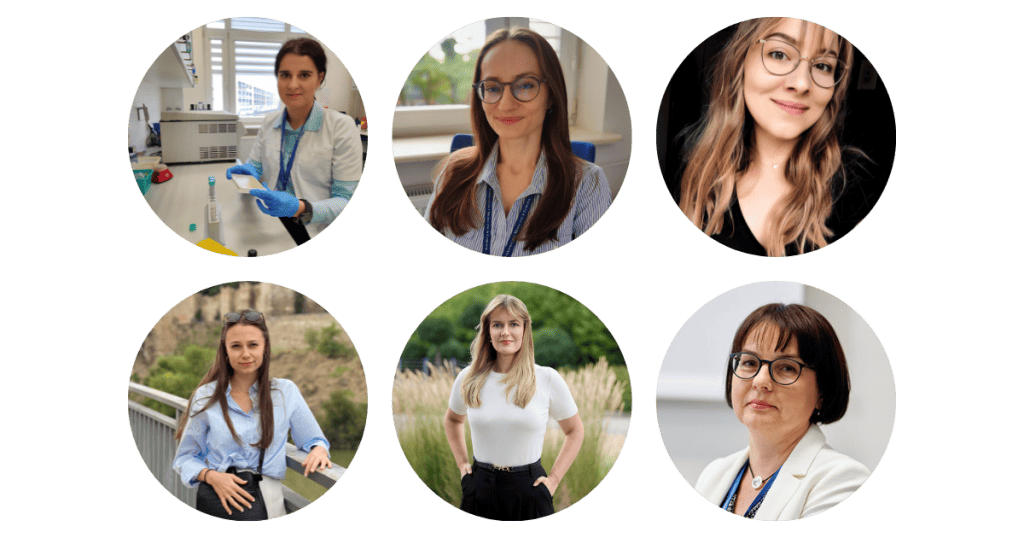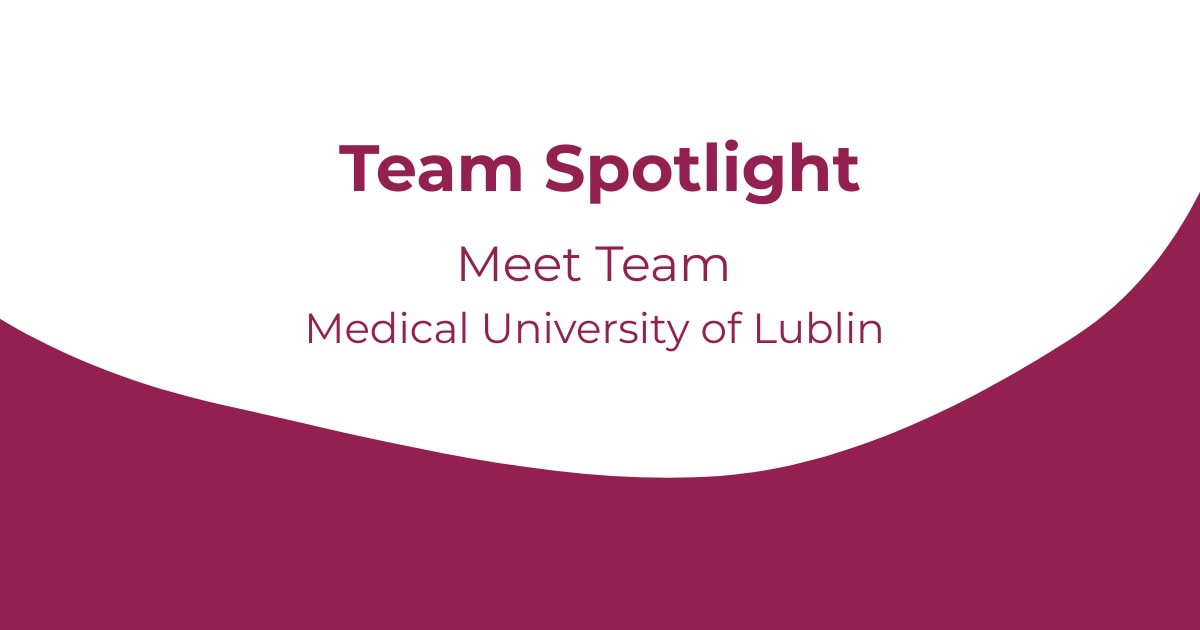As part of our EUmetriosis meet the teams’ spotlight, we are delighted to introduce the researchers at the Medical University of Lublin (MUL). This team of immunologists and clinical scientists is at the forefront of exploring how the immune system influences the development and progression of endometriosis.
Their work is uncovering new pathways for understanding this complex disease, with the potential to create earlier diagnoses, new biomarkers, and future immune-targeted therapies that could transform care for millions.

Karolina Włodarczyk-Ciekańska highlights the team’s central focus of moving beyond simply identifying immune cells to uncovering the mechanisms that allow endometriosis to thrive.:
“In the EUmetriosis project, our team focuses on the immune system’s role in endometriosis. We study not just the presence of immune cells, but how they behave, communicate, and sometimes suppress the body’s natural defences. We’re working to understand why endometriosis lesions persist and evade immune surveillance.”
Paulina Pieniądz-Fekulak expands on why their work is essential within the EUmetriosis consortium and underlines the unique contribution of the Lublin team by mapping immune responses in multiple systems at once.:
“We analyse immune activity in both blood and menstrual fluid to capture local and systemic changes. This is how we contribute to more precise and personalised approaches to endometriosis care.”
By doing so, they aim to pinpoint measurable signals, or biomarkers, that could one day speed up diagnosis and guide targeted therapies.
For Dorota Suszczyk, the motivation is discovery. She reflects on the team’s excitement about venturing into uncharted territory.
“We’re most excited about shining light on unexplored areas of endometriosis immunology. Understanding the immune microenvironment could be truly groundbreaking.”
By studying immune checkpoints and microenvironment interactions, they are tackling aspects of endometriosis that remain poorly understood but could hold the key to breakthrough solutions.
Data manager and researcher Wiktoria Skiba ensures the team’s findings are carefully organised and accessible, while also contributing in the lab.
“I’m proud to manage data for one of our work packages, ensuring it’s carefully organised and accessible to the team. Being part of a project that combines hands-on research with data-driven insight is incredibly exciting and it feels like we’re piecing together a puzzle that could make a real difference.”
Researcher Anna Pawłowska-Łachut reflects on both personal and professional motivations:
“Personally, we want to raise awareness of endometriosis across the public and medical communities. Professionally, EUmetriosis gives us a chance to collaborate with leading international experts, adopt best practices, and build lasting partnerships.”
Lastly, researcher Iwona Wertel hopes this research will shorten the diagnostic journey, reduce suffering, and open doors to holistic care approaches that support both physical and reproductive health. She says,
“Endometriosis requires earlier diagnosis and specialised treatment. Our immunological analyses look at both local and systemic changes, helping us identify potential biomarkers and therapeutic targets. Ultimately, we want to simplify the diagnostic pathway, reduce delays, and ensure access to multidisciplinary care. By deepening knowledge about immune responses, pain, and fertility, we hope to improve quality of life for people with endometriosis.”
The Lublin team’s work is central to EUmetriosis: by decoding the immune system’s role in endometriosis, they are laying the foundations for earlier diagnosis, innovative biomarkers, and more effective therapies. Their contributions are not only advancing science but also building hope for patients across Europe.
Find out more about MUL’s project on our news page and about the EUmetriosis teams here.
